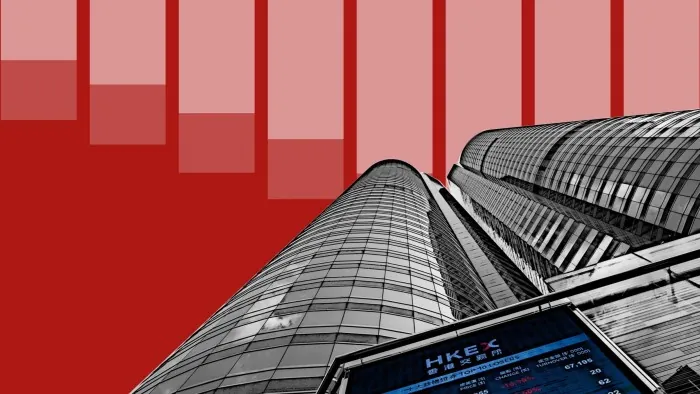
Hong Kong Stock Market Takes a Hit as China’s Stimulus Package Fails to Impress
2024-11-11
Author: Lok
Hong Kong's stock market experienced a notable decline on Monday, following a disappointing fiscal stimulus package announced by Chinese authorities last week, designed to bolster the nation's economy.
In the lead-up to the announcement, Chinese equities had seen an uptick, fueled by investors’ optimism regarding further details on Beijing's stimulus plan after a monetary policy overhaul unveiled at the end of September. However, the actual measures fell short of expectations, especially with an evident lack of initiatives aimed at boosting consumer spending. As a result, the Hang Seng Index, which serves as a critical indicator of foreign investor sentiment towards China, closed down by 1.5%.
Jason Lui, head of Asia-Pacific equities and derivatives strategy at BNP Paribas, commented on the market sentiment: “Investors are unwinding bullish bets as they feel the major event is over and they are a bit let down.” Additionally, Lui pointed out that while mainland markets are witnessing increased retail participation, the speculation on additional central bank lending facilities to encourage stock purchases did little to lift overall investor confidence.
In a contrasting scenario, the CSI 300 index of mainland China saw a slight rise of 0.7% after earlier dipping by up to 1.4%. This resilience was partly attributed to intriguing market dynamics, where retail investors were actively participating in the market.
Compounding the market's woes, the People's Bank of China intervened, setting the trading rate of the renminbi at its lowest level in a year, at Rmb7.18 against the dollar. This fixed rate reflects a 0.5% decrease from Friday's numbers, indicating mounting pressure on the currency due to investment outflows and the looming effects of potential trade tensions with the incoming U.S. administration under President-elect Donald Trump.
Commodity prices also faced downward trends as investors adjusted their outlook based on anticipated lower demand stemming from China’s ongoing property market crisis, which has been a significant drag on its economic growth. Prices for iron ore fell by 3% to Rmb760 ($106) a tonne, while LME copper dropped 2.4% to $9,477 a tonne. Even major corporations like BHP Group, the world’s largest listed miner, reported a 4.1% decline in their stock price, closing at A$41.6 (US$27.4).
Meanwhile, the international oil benchmark, Brent crude, saw a modest decrease of 0.4%, reflecting ongoing concerns regarding China's economic outlook, trading at $73.50 a barrel.
Traders in options markets have begun liquidating their Chinese equity positions in Hong Kong, signaling skepticism surrounding the potential impact of the newly introduced fiscal stimulus on market movements. The six-month at-the-money options for the Hang Seng China Enterprises index fell by a substantial 9.2%.
The recent fiscal package unveiled by China's National People’s Congress amounted to $1.4 trillion, aimed at restructuring local government debt. However, many analysts, including those from Nomura, expressed disappointment in the lack of aggressive measures to stimulate consumer spending or recapitalize banks. "With a perceived emphasis on stabilization rather than actual stimulus, this has come as a letdown for stock investors," they noted.
Investors are now turning their attention to the upcoming Central Economic Work Conference, set to occur in December in Beijing, anticipating more concrete stimulus measures that could revive market optimism.
In a rather evocative comparison, analysts reflected on the situation, likening it to Green Day’s song "Boulevard of Broken Dreams," which encapsulates the narrative of ongoing disappointment that many investors are feeling in light of the recent developments.



 Brasil (PT)
Brasil (PT)
 Canada (EN)
Canada (EN)
 Chile (ES)
Chile (ES)
 España (ES)
España (ES)
 France (FR)
France (FR)
 Hong Kong (EN)
Hong Kong (EN)
 Italia (IT)
Italia (IT)
 日本 (JA)
日本 (JA)
 Magyarország (HU)
Magyarország (HU)
 Norge (NO)
Norge (NO)
 Polska (PL)
Polska (PL)
 Schweiz (DE)
Schweiz (DE)
 Singapore (EN)
Singapore (EN)
 Sverige (SV)
Sverige (SV)
 Suomi (FI)
Suomi (FI)
 Türkiye (TR)
Türkiye (TR)